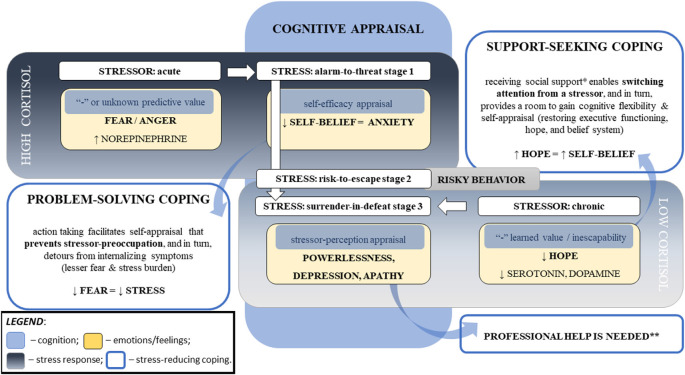Figure 3.
Major cognitive determinants of the cortisol responses linked to stress psychopathology. Note. This diagram represents the major factors influencing cortisol response to stress that can lead to stress disorders. Stress responses depend on the particular challenge, one’s perception of the stressor, and the ability to cope with the stressor. The stressor’s intensity, acuity, and persistence relate to cortisol responses, which are moderated by cognitive appraisal that is associated with self-efficacy and coping abilities. The stressor’s novelty (i.e., unknown predictive value) and inescapability (i.e., negative “learned” value) increase negative predictive values (i.e., fear and powerlessness, respectively), that hinder self-appraisal and aggravate stress severity. Repeated exposure to homotypic stressors resets the hypothalamic–pituitary–adrenal axis. Chronic stress can result in blunted cortisol responses to a stressor, flattened diurnal slops, and increased cortisol awakening responses. Legend: *—not limited to the emotional aspect that reduces stress perception (e.g., motivation, compassion1, and sense of belonging2–4) but also social and physical aspects directed to a reduction in the stressor’s influence (e.g., physical or financial help); **—risk of PTSD and suicidal ideation; ↑: increase; ↓: decrease, “-”: negative; 1Vaillancourt and Palamarchuk (2021); 2Grobecker (2016); 3Choenarom et al. (2005); 4Stachl and Baranger (2020).

